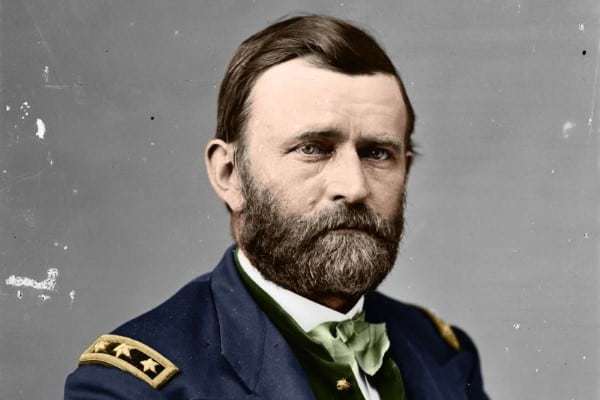For Civil War historians, there is no historical memoir more valued than that of Ulysses S. Grant. Even more than 132 years later, the memoirs are considered some of the best writing by a former president to ever be published. That’s astounding considering we have writing and memoirs from such giants as Thomas Jefferson.
Personal Memoirs of Ulysses S. Grant was one of the most proclaimed books to come out of the post-Civil War era, and for good reason. There is a group of people who led the fight in the Civil War (from both sides) that wrote books that gave insightful and intriguing perspectives of the war. Grant’s had the added benefit of his position during the war. Robert E. Lee’s memoirs were never published in his lifetime, so Grant’s memoirs were the only written perspective from the top of either major army.
The thing is, we almost didn’t have them. Grant only finished the writing of his memoirs a month before he died from cancer in 1885, and even then it was a close call. Grant had been suffering from illness since early 1884. Moreover, the finances of the Grant family at the time necessitated something that would sustain an income after his death.

Originally, the offer for the memoirs came from The Century Magazine, a monthly illustrated periodical, which at the time was the country’s largest magazine. Grant had previously written a series of articles for them. At the time he was paid $500 per article, which if you do the math, is over $11,000. The editor of the magazine prodded Grant into writing his memoirs, which would also include some of the articles he had written.
The magazine offered Grant and his family 10 percent in royalties from the sale of the book once it was published. With the financial future of his soon-to-be widow in mind, Grant turned that offer down, in favor of an offer from his friend Mark Twain. Yes, that Mark Twain. Twain offered to publish Grant’s book and return 75% in royalties, which even today is pretty unheard of. This is contested by some historians who claim the royalty turned out to be closer to 40%. No matter the number in the end, it was high enough to net Julia Grant (Grant’s widow) around half a million dollars ($11.3 million in today’s money).

